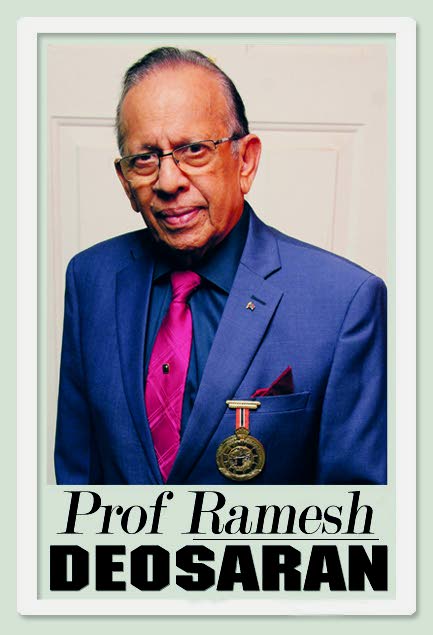Divali economics and culture

This year’s Divali prayers and celebrations appeared to be among the most, if not the most, glorious of all I have witnessed.
From all corners of the country, rich or poor, the lighted deyas were further brightened by electric lights, music, songs, food, happy faces and colourful dress.
It’s a big family affair too. Divali is religious at its core but increasingly cultural in our multi-ethnic society. A widened consumption base and cultural growth are ahead.
Media staff, public service personnel and politicians of whatever race or religion were proudly dressed accordingly. "Shubh Divali" among citizens is becoming a greeting almost spontaneous as "Merry Christmas."
As at Christmas, the houses, yards, even curtains had to be spick and span. The numerous Hindu temples around the country ensured that prayers and worshipping were not left behind. Prayer-food like parsad and mohan bhog, barfi, jalebi and kurma – increasingly appreciated by one and all – almost pushed doubles and roti into second place.
Such cultural celebrations should not be seen as competition or triumphant, but as invitations.
The flourish of buying, selling and sharing – energised by radio music, television shows and advertising – created a Divali economy of its own. So it is too with Christmas, Eid, Emancipation Day. With joy and pride, money spent and money earned. And this with the reciprocal benefits of business sponsorship.
This is the economics of culture – a phenomenon that could prosper with tourism. Our Carnival, with economic promise, is now used as a celebrated tourism attraction in many other countries.
There were diasporic explosions from London, New York, Melbourne, California, Toronto, South Africa, China, Japan to New Zealand, etc.
Over there, Divali celebrations and supporting crowds have become an annual November event, leaving Felicity, Aranguez and Debe as the flagbearers still.
Some years ago, an elaborate Divali celebration used to be annually held by a group of youths at the Aranguez Savannah (under the samaan tree). I enjoyed being its regular feature speaker. I admire the sustained cultural leadership by the National Council of Indian Culture (NCIC) and its tireless executive.
US Vice-President Kamala Harris led the deya-lighting at the White House. New York mayor Eric Adams pledged to make it a public holiday. There is now Hindu Heritage Month in Canada. Overseas prime ministers, mayors and other public officials joined with speeches of goodwill.
Divali is heading for universal appreciation and celebration.
The celebrated culture of a country, especially a multi-ethnic one, is its “soft power,” shaping its economics and often helping to keep its politics in check. It sometimes looks as if what politics break, culture heals.
In this Divali holiday, the hopes for the country’s progress and yearning for peace get nobly voiced by our leaders. On that day, our president, Christine Kangaloo, said: “As we light our deyas, we should reflect on those that were lit to herald the return of Lord Rama and Mother Sita to the village of Ayodhya and be inspired to practise patience and perseverance as we face challenges in our own lives.”
At his Diplomatic Centre celebrations, the PM said: “The message of light defeating darkness was an invitation for all to look within themselves for inner peace and replace tribal and cultural conflicts with inherent love.”
And from Opposition Leader Ms Kamla Persad-Bissessar: “Divali has now evolved into a national festival, embraced and celebrated by the majority of citizens. This has always been our unique ability as a diverse people to espouse an inspiring type of tolerance, togetherness and unity that binds into a beautiful, kaleidoscopic country.”
Tobago House of Assembly Chief Secretary Farley Augustine also respectfully patronised the Tobago Hindu Society Divali celebrations and conveyed his own message for national peace and prosperity.
Such noble messages appear to be attempts to turn the society now under siege into one of peace and prosperity. The fires of hope still burn bright.
Our cultural boundaries are becoming more and more porous, blurred, as if leaving plantation prejudices behind.
It is ironic, however, that such hopes for a better society and world are sadly challenged by the visible wars in Gaza and Ukraine, leaving us to wonder if political ambitions and greed for more power and land will ever subside. As if the light is still struggling to conquer the darkness here and abroad.


Comments
"Divali economics and culture"